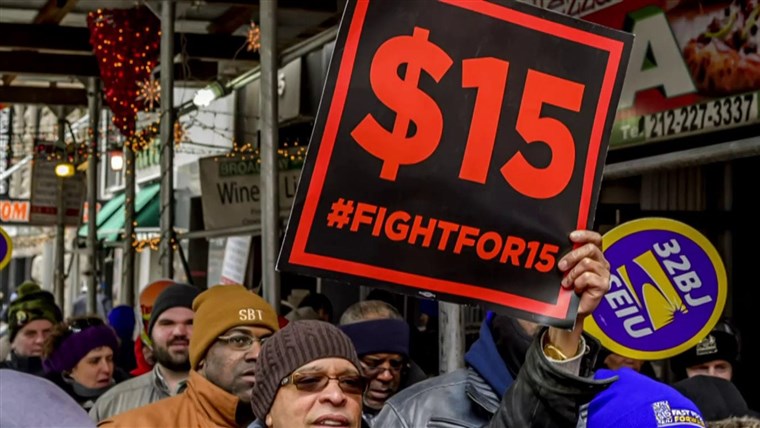Federal government’s move against $15 minimum wage conflicts with Americans’ desire
April 15, 2021
On March 5, Senator Kyrsten Sinema (D-AZ) shot down the addition of a minimum wage increase in a now viral action that involved her enthusiastically pointing her thumb to the ground. The overall vote against a $15 federal minimum wage came as a shock to not just people who support Democrats, but Americans in general. The Pew Research Center found that the vast majority of Americans, 67%, support a $15 dollar minimum wage. Not only do Americans as a whole agree with this policy, but economists do as well.
The current federal minimum wage of $7.25 is 29% less than the minimum wage 50 years ago, when adjusted for inflation. Some economists go as far as to say that, if anything, the minimum wage should be higher, closer to $20. Either way, the one thing that most economists agree on is that the current federal minimum wage is unlivable and nearer to that of starvation wages than what should be offered to workers in the most wealthy country in the world.
The Economic Policy Institute found that an increase in these wages would increase consumer demand, business activity, and job growth. The simple reason for this is that, when people have more resources, they tend to use them and thus stimulate the economy.This inherently supports local economies and helps small businesses, the one demographic that Republicans and some Democrats state is hurt by a wage increase. The evidence for this is empirical, as the minimum wage has been increased to the aid of small businesses for nearly a century since it was first put in place during the Great Depression. Additionally, the proposed $15 minimum wage is meant to take place gradually over four years, taking into account some small businesses that may not be able to afford paying their workers more with ease.
There are virtually no negatives to a proposed $15 minimum wage. It would help citizens struggling following the pandemic, support local businesses, and, perhaps most important to a democracy, fit the will of the American people.



